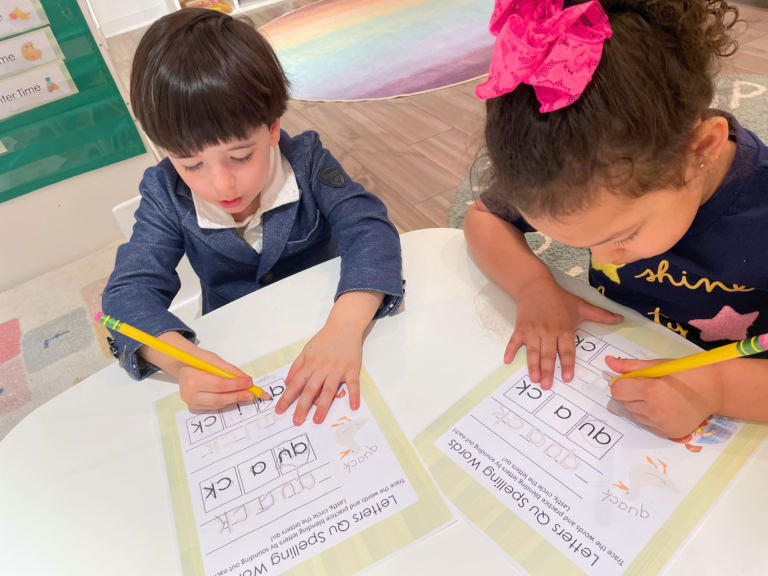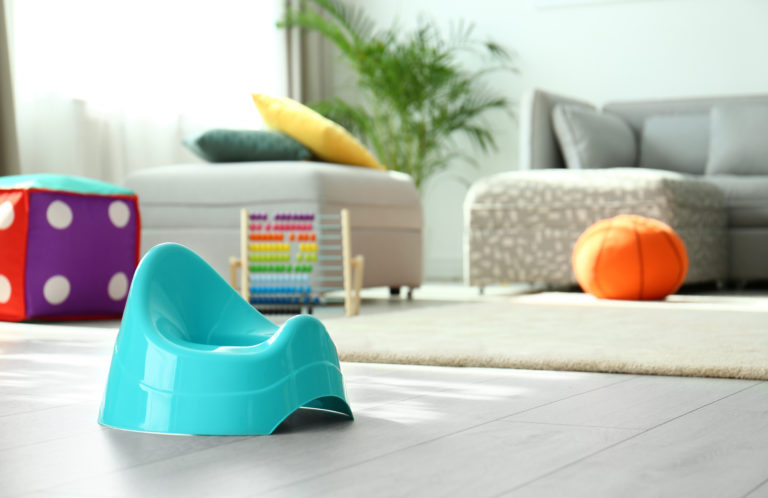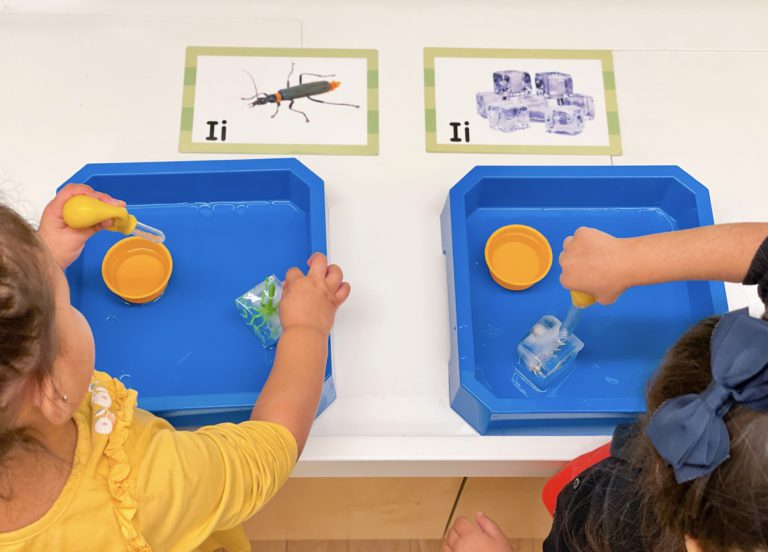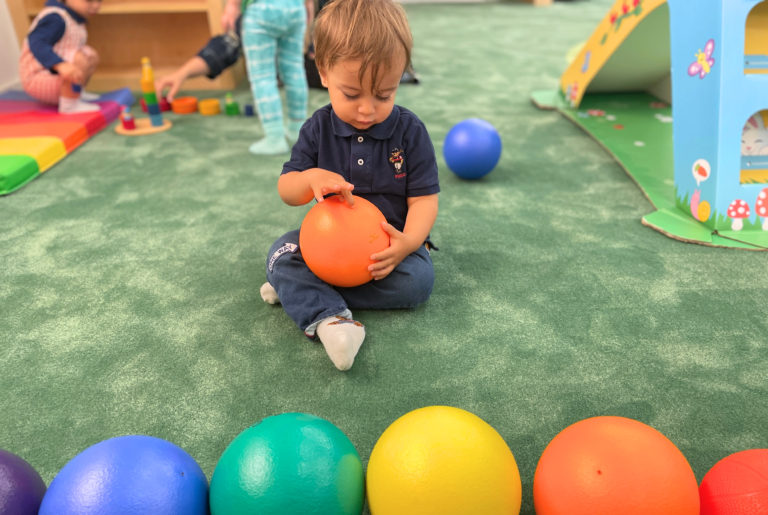Teaching Your Kids to Ask for Help
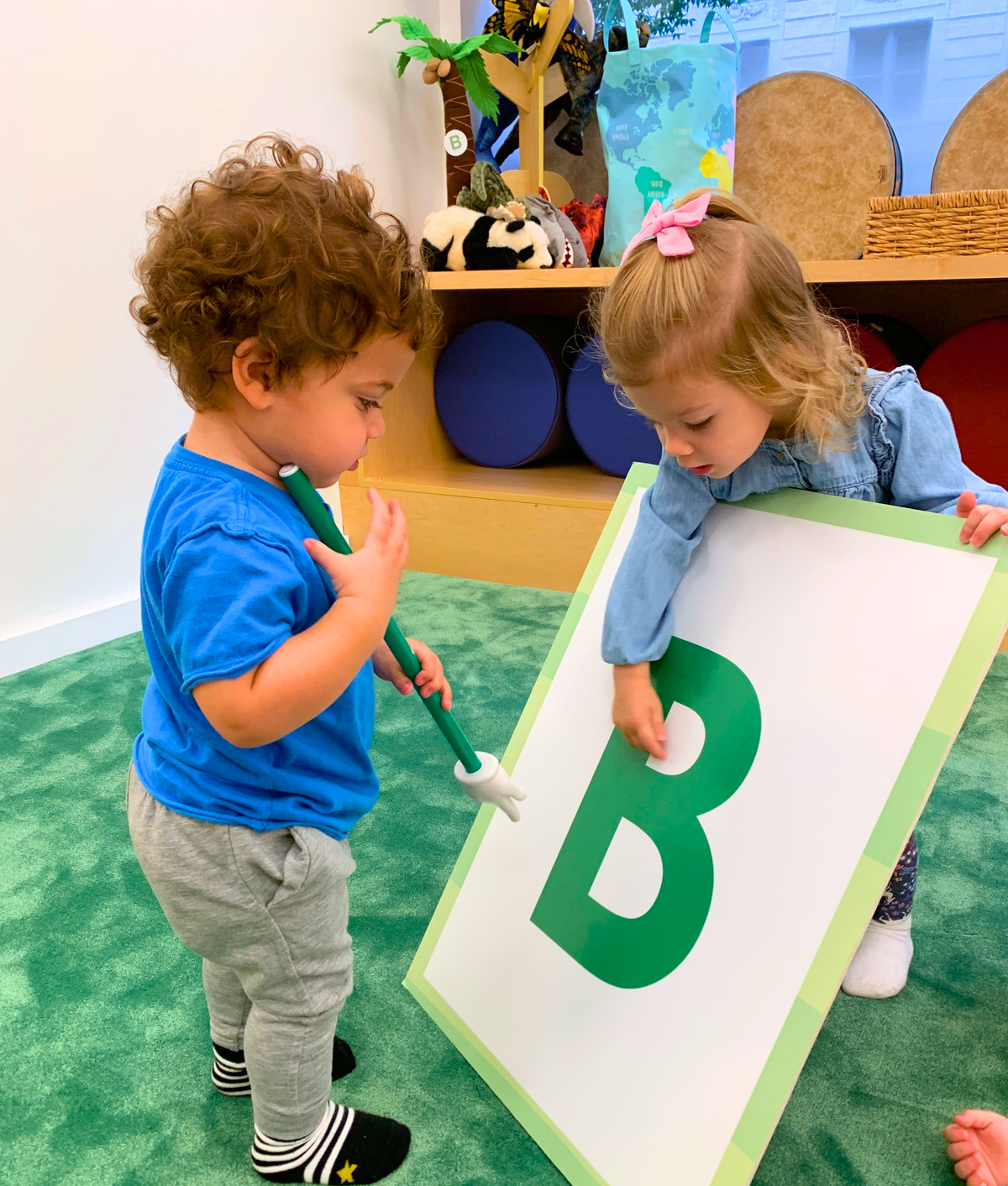
As your little one begins to foster independence, it is important for their social emotional development to learn how to ask for help. Especially as they begin their early childhood education in a classroom setting, knowing how and when to ask for help is a skill that will only help your little one succeed.
Asking for help starts early and can be practiced every day. For instance, I’m at work and watching kids in the ball pit. Some have mastered getting out of the ball pit and onto the slide, but some of our smaller friends are still figuring it out. They’ll look up to me and I ask “would you like some help out?” And they’ll give a nod or a quiet “yes,” which I respond with “okay, can we say ‘help please, Miss Julia?’” Depending on the speech development of the little one, I’ll get a parrot-like response or a few little grumbles. Either way, I always encourage them to ask for help themselves before I help them out. It’s small but if practiced everyday, I’ll start hearing “Miss Julia, help please,” before I even see them struggling. They can carry this new skill into the classroom as they continue their early childhood education.
As they get older, work in the classroom comes home and you get to see how your child is developing their problem-solving and social emotional skills. Some kiddos will jump right into an assignment or lesson with no instructions. While the enthusiasm is encouraged, it can lead to frustration later on. Gently remind them that knowing the steps to complete the project is super important.
For example: “I love how excited you are to work on this! Let’s review the instructions so we know what to do, and if you have any questions afterward, we’ll figure it out together.”
It’s critical for your child’s social emotional development to remind them that asking for help does not mean they are helpless. Help them ground themselves in what they do know to figure out where the help is most needed. Starting with what they understand reinforces their independence and builds confidence. When your little one is struggling, encourage them to locate what they do understand and then go back to what is causing frustration. It’s also helpful to let them know they are not alone.
For example: “I get frustrated too! It helps me to press pause, take a breath and try again.”
It’s hard to watch when our little one is struggling with a problem they want to solve themselves. Rescuing them from their frustration is tempting, however, learning how to ask for assistance will empower them to make the decision on their own when they are sure they can’t do it by themselves anymore. Additionally, there is nothing wrong with letting them know that you are there if they need you. Their support system is their foundation and safe space, and a reminder of that is always welcome.
For example: “I can see what you’re working on is challenging you, and if you would like help I am here.”
I have an 8 year-old niece who is dyslexic, which makes learning a bit more challenging for her. When it came time for her to get in a classroom setting, her parents were proactive about teaching her to ask for help because there were going to be subjects or lessons that were going to be more challenging. They told her that she needed to communicate with her teacher and advocate for herself. She’s built the confidence to approach her teacher and say that she doesn’t understand something and needs more help. Learning this skill in early childhood education has taught her that with a support system that believes in her, as well as belief in herself, nothing can keep her from succeeding in school.
Asking for help can be a daunting task, but if little ones have a strong support system, including grown-ups who can lead by example, there’s no telling what they can accomplish. For more tips and tools for social emotional development, join our Playgarden Online community! Early childhood education is waiting – start your free trial today!
Popular


Hi, I'm Miss Julia!
Miss Julia has been an early childhood educator for 5 years, with over 10 years of experience working in childcare. She has been teaching at Playgarden Prep since 2017, and is happy to share ideas on some of her favorite early education topics with you! Miss Julia has a BA from UC Irvine, and uses her experience in performing arts to inspire little ones every day in her enrichment classes at Playgarden. In her free time, Miss Julia loves enjoying nature, cooking, and creating with friends.

